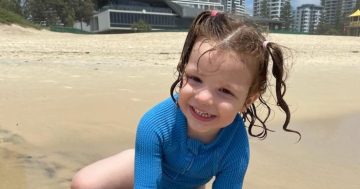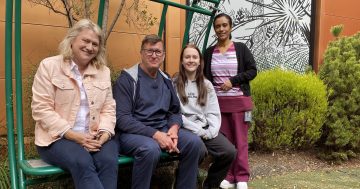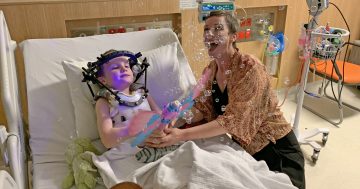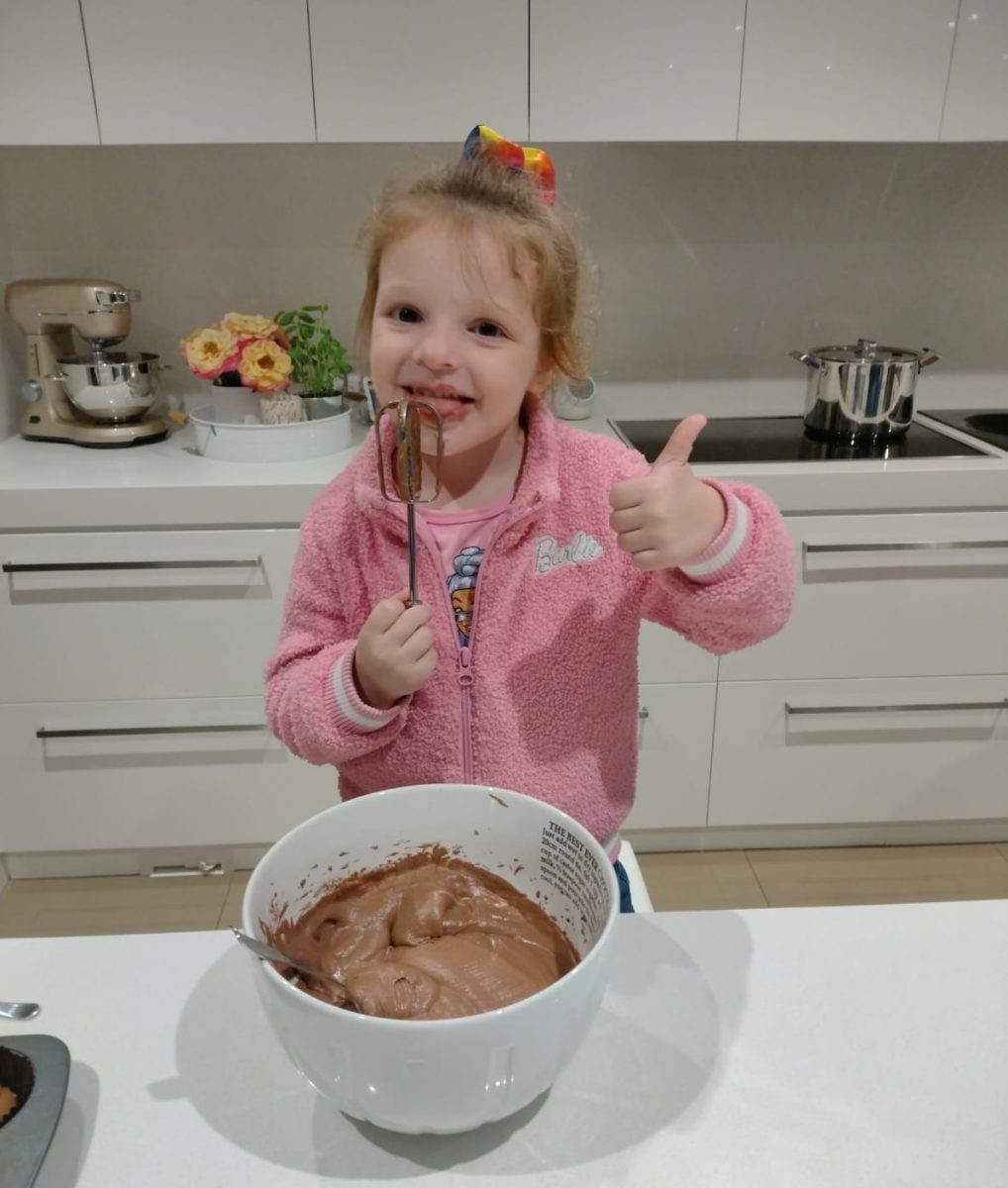
Rozalia Spadafora died at Canberra Hospital on 5 July, one day after her fifth birthday. Photo: Supplied.
WARNING: This article may distress some readers.
Every night when Katrina Spadafora and her husband go to bed, they’re reminded their daughter Rozalia is no longer with them.
“She used to sleep with us every night, so we have to go to bed with nothing,” her mother Katrina said.
Rozalia died at Canberra Hospital a day after she was admitted on her fifth birthday.
“She was an energetic little four-year-old that loved everybody, who didn’t even get to see her fifth birthday because she was in hospital,” Katrina said.
“She had been counting down the days for months.”
Rozalia’s decline started on 28 June when she developed a slight fever and a GP found fluid in her ears. She was prescribed antibiotics and seemed to be improving.
That all changed when she woke up on 3 July.
“I noticed she was feeling a little lethargic and her face was really puffy. I thought, something isn’t right,” Katrina said.
Throughout the day, Rozalia became more fatigued and developed “a little tickle” of a cough, so Katrina took her to Canberra Hospital’s CALMS clinic. The puffiness was suspected to be an allergy and they were given a script for some steroids.
The next day was the day Rozalia had been eagerly waiting for: Monday, 4 July, her fifth birthday.
“But she asked me to get her from the bed … she said, ‘oh mummy, can you please carry me to the couch, because I can’t walk’.”
Rozalia was given her prescribed steroid and a recommended antihistamine and asked if she wanted to open her presents.
But her great-aunt Sarina Schirripa said she didn’t have the energy.
“She didn’t even have the strength to pull off the sticky tape,” she said.
Katrina squeezed her daughter in for another appointment with her GP at 5:15 pm. The doctor noted Rozalia had a slight temperature and her heart rate was elevated. She recommended Rozalia go to Canberra Hospital for some blood tests.
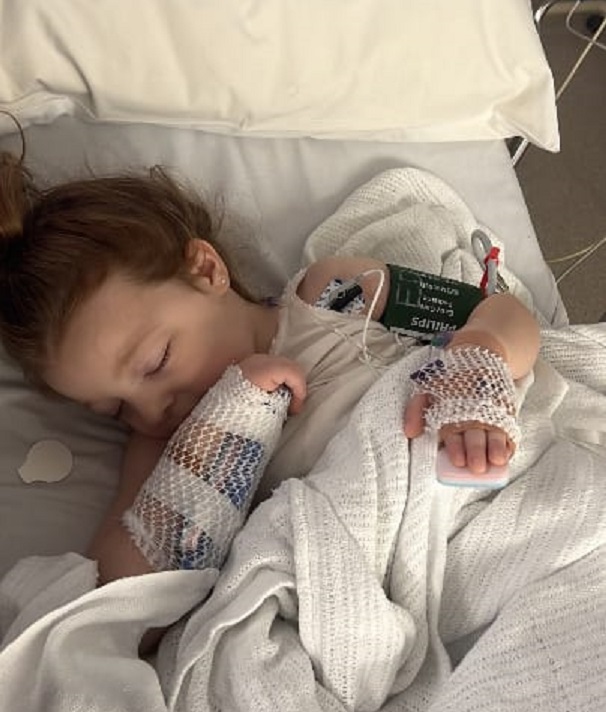
It took several hours for “limp, pale and lifeless” Rozalia to get a bed in Canberra Hospital. Photo: Supplied.
By the time Katrina and her mother arrived at the emergency department (ED) it was 7 pm. Rozalia’s blood sugar and temperature was taken and the family waited. At one point, a nurse came around to the waiting families and said it would be a four-hour wait, suggesting parents go home “if you feel like your child doesn’t need to be here”.
Katrina stood her ground, knowing her daughter needed to be seen.
They were eventually taken from the ED to the paediatrics emergency waiting room but a bed wasn’t available.
More observations were taken at about 10:30 pm and the family was given a consultation room by 11:30 pm. They were given Hydralyte, water and a syringe and told to give Rozalia 30 mL every 15 minutes.
Just before 1 am (Tuesday, 5 July), the family was seen by a doctor, who Katrina said couldn’t find the record of Rozalia’s CALMS visit in the online system. Rozalia’s observations were taken again and her heart was listened to – the first time since they entered the hospital.
They were given a bed when Rozalia was sick.
“She just did this sudden massive vomit, all that Hydralyte came back out,” Katrina said.
“I rang the nurse’s bell so they could see how much vomit there was … I watched the TV screen that showed when each bed rang its bell. It said it had been 10 minutes, 20 minutes … and I said to mum, ‘oh my god, look, it’s been 40 minutes’, and then it was turned off.”
By the time a doctor came to take Rozalia’s blood, it was 3 am. A UV light was needed to find a vein and Katrina said they could only take a “tiny, tiny amount of blood”.
Another doctor had to return a little over an hour later to try again and suggested Rozalia be moved to ICU to “keep a closer eye on her”.
At 7 am, a lethargic Rozalia had a chest x-ray and was asking to go home. It was after this that Katrina said she was finally told Rozalia had influenza A and that her liver was a “little enlarged”, but she was expected to be discharged in “three to four days”.
They were moved back to the paediatric ED, and an ultrasound of Rozalia’s liver, kidneys and abdomen was undertaken at around 10 am.
Katrina said a paediatrician suddenly came into the room, saying something had “arisen” with Rozalia’s heart.
“We were told they might have to send her to Sydney because the hospital didn’t have the machines or doctors to deal with something like this,” she said.
“They kept saying, ‘you’re in the best possible place, you’re in the best possible place’ … it was like a jingle.”
Rozalia was moved back to ICU into a resuscitation area.
Soon, three doctors arrived with an anaesthetist to place a central line to Rozalia’s heart to get her heart rate up “for the trip to Sydney” at about 2 pm. Katrina said it took two hours to get the line in, and Rozalia was sedated rather than put to sleep.
“She could feel everything. It was very, very traumatic,” she said.
“All the time, I was asking, ‘is this fatal? Will she be ok?’.”
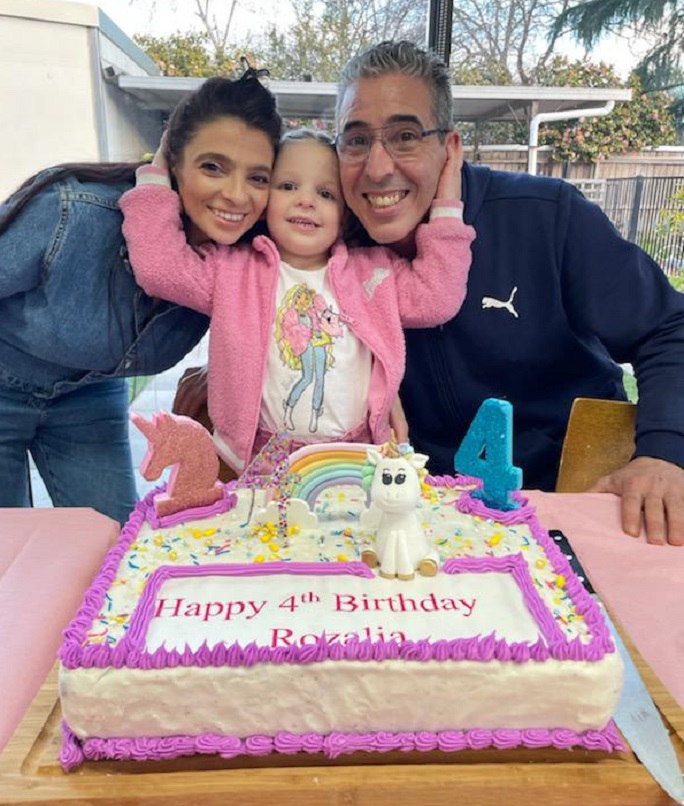
Rozalia with her parents on her fourth birthday. Photo: Supplied.
Katrina was told they would be flown to Sydney in two hours. But at 7 pm she was told there was a problem with the tarmac and they’d need to take an ambulance to Canberra Airport before boarding a helicopter there.
As preparations were made to get moving, Rozalia began asking for water.
“That’s when I noticed she started changing colour and she was really cold,” Katrina said.
“They said she might need a breathing tube for the flight … I asked again, ‘is she ok?’
“One doctor turned to me and said, ‘you’ve got a very, very sick little girl on your hands’.”
When Katrina looked back at her daughter, she noticed her eyes were staring and non-responsive.
“I called her name and she looked at me, and then she went into a fit,” she said.
Katrina’s husband arrived at the hospital as staff were trying to resuscitate his little girl who had gone into cardiac arrest.
“They said to him, ‘oh, come this way, we’re trying to revive your daughter’ and he just collapsed,” Katrina said.
“They then came out and told me she’s not coming back.”
The police arrived shortly after and took a statement from Katrina before the family left without the girl they had walked in with.
They were told Rozalia had died from a heart condition called myocarditis as a result of her influenza A infection.
Katrina said she didn’t hear from the hospital again until three weeks later when the media found out Rozalia’s death had been referred to the ACT Coroner’s office.
“I want to know why. Why did it take so long to look after her? Why don’t we have these proper doctors?
“We’re speaking out to help other families. This cannot happen to anyone else. No parent should have to suffer this.”
It could take 10 weeks for the coroner to decide whether an inquest should be undertaken into Rozalia’s death. The inquest could then take 12 months.

Rozalia’s fifth birthday presents were still waiting for her at home, along with the calendar she used to count down to the big day. Photo: Supplied.
Sarina said since news of Rozalia’s death had been made public, the family had been contacted by other people who had been in the ED that day.
“We’ve had strangers saying they were concerned about why Rozalia wasn’t being checked … she was just pale, limp and lifeless on her mother’s lap,” she said.
“One person sent us a video of a helicopter landing at 6:41 pm … but they told Katrina there had been an issue with the tarmac.
“This isn’t a third-world country, this is Canberra.”
Sarina was angered by Chief Minister Andrew Barr’s comments on ABC Radio that Canberra was too small to have certain specialist health services.
“We have enough money and people for light rail, but not enough money to look after people. How does that work?” she said.
“This is a horrible, horrible, horrible story, but it’s one that needs to be told because they can’t sweep it under the carpet.
“Canberra Hospital has a lot of problems, it hasn’t just started now.”
Meanwhile, Katrina received a letter from the hospital on Monday (1 August) which said an internal investigation had been launched.


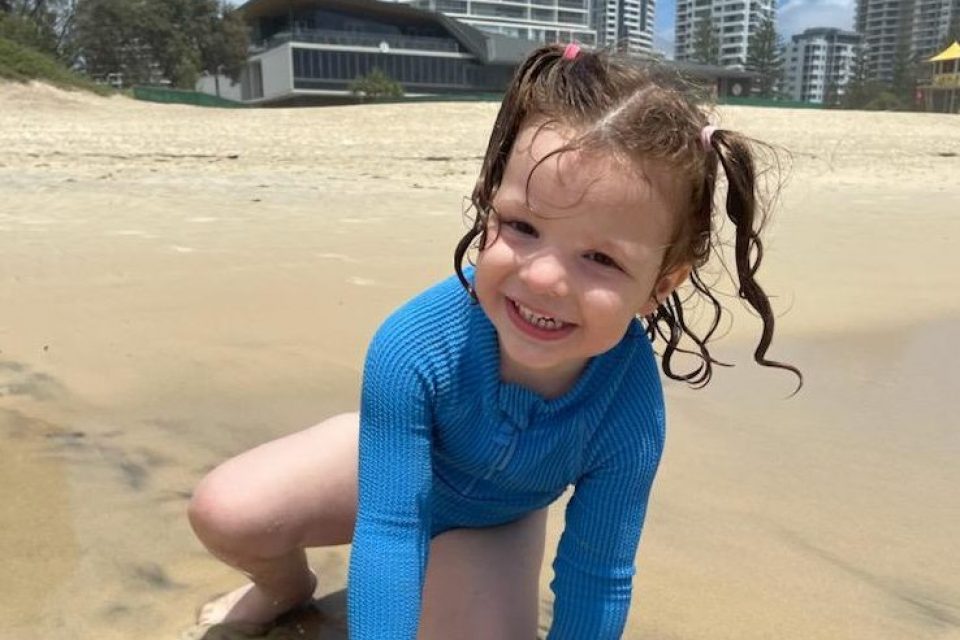
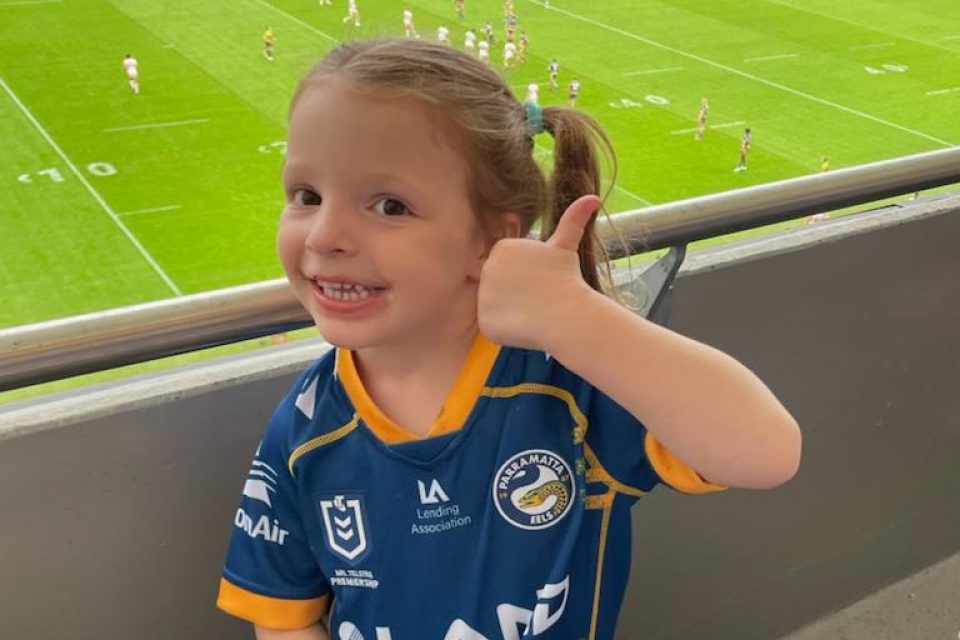

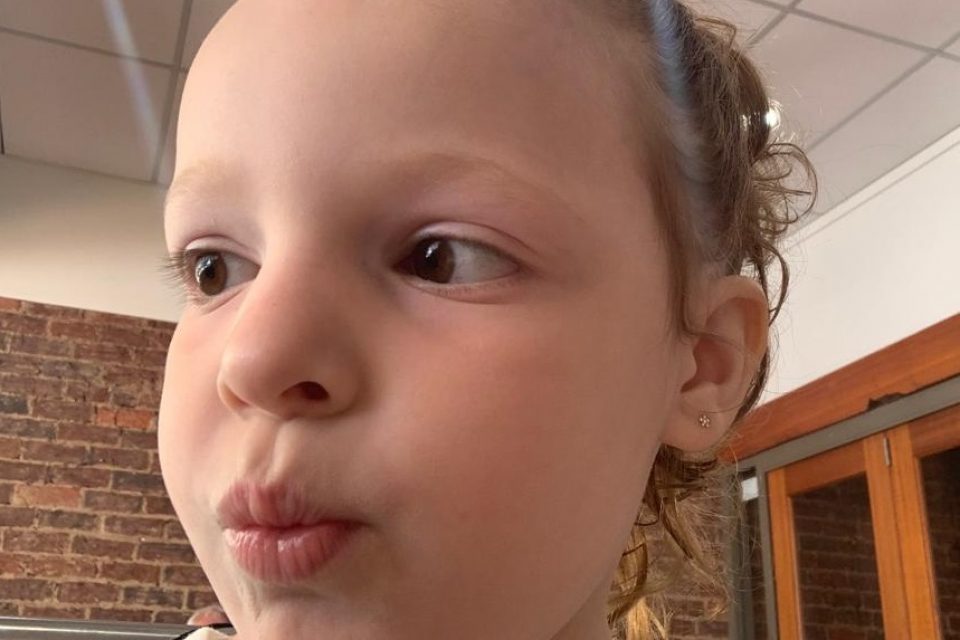
She has been holding on to memories of her “queen of the house”.
“Her wish was everyone’s command,” she said.
“She was so fun, so energetic, she loved football … she just had a special connection with everybody.”
But she also questioned whether she could have done more.
“Did I not do enough when I was there?” Katrina asked.
Sarina reassured her niece she had done “everything a mother would do”.
“Katrina was not there to waste anyone’s time. She had been to the doctor three times, she thought she had done the right thing,” she said.
“It’s just total negligence.”
When asked about Rozalia’s death at the time, health minister Rachel Stephen-Smith gave her condolences.
“The death of any child is a tragedy and our thoughts are with the family at this really, really difficult time,” she said.
“I also want to assure people that the staff who were involved in this are receiving support.”
Opposition health spokesperson Leanne Castley has met with the family and kept in touch.
“I welcome an investigation into the circumstances around these tragic events and we will wait until the findings are handed down,” she said.
“There is a family truly devastated and their little five-year-old girl is not at home right now, and that is heartbreaking.”
A Canberra Health Services spokesperson said it was conducting a “clinical review” into what happened.
“[This] is the usual process following an unexpected death,” they said.
“CHS staff have reached out to her family to ensure they are feeling appropriately supported at this very difficult time and that her parents understand the processes currently underway.
“We continue to extend our condolences to the family and friends of the child who tragically passed away recently at Canberra Hospital. We are also ensuring that team members who were involved in the child’s care are receiving support.”














